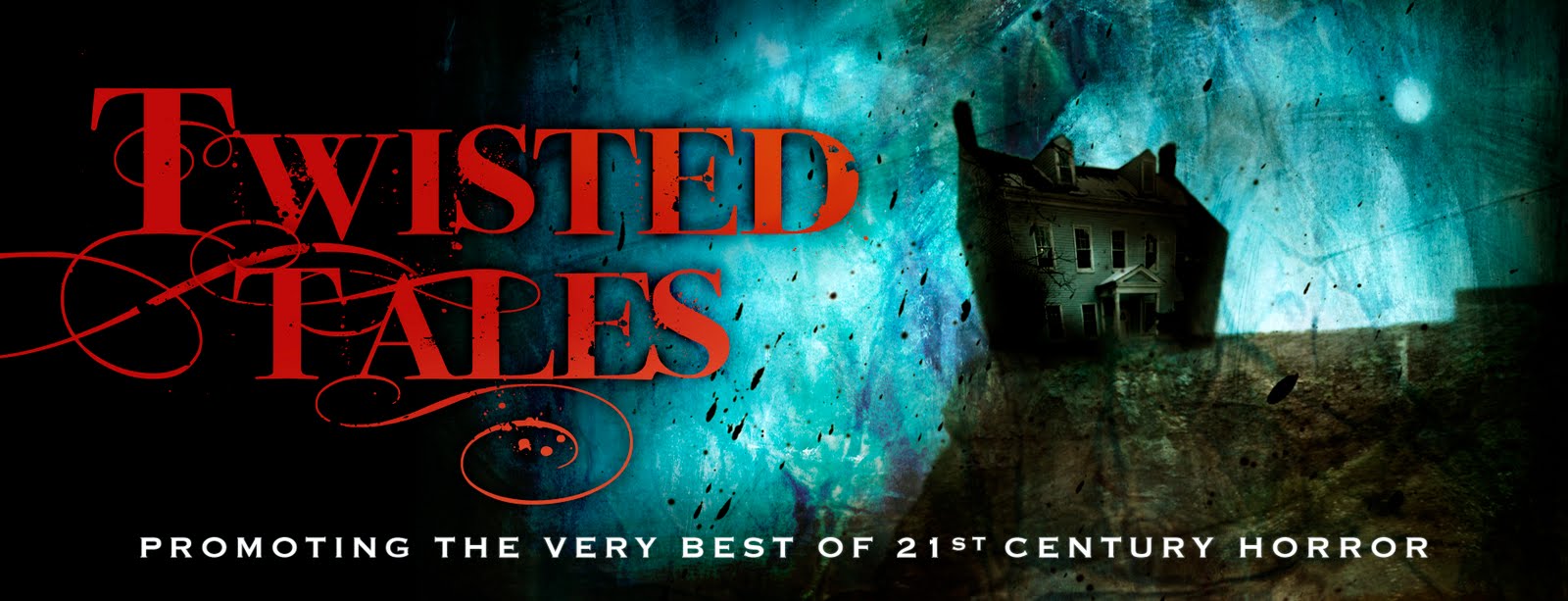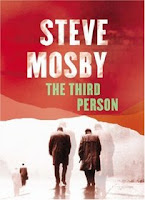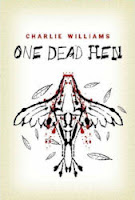Steve Mosby is the author of six novels. The most recent is
Black Flowers, while his previous book,
Still Bleeding, has just been longlisted for the Theakston Old Peculier Crime Novel of the Year. He is 34 years old and was born in Leeds. After studying Philosophy at university, he temped around doing the usual unfulfilling jobs for small amounts of money, and now writes full time. He still lives in Leeds, with his wife and son. His website is
www.theleftroom.co.uk.
SM: Actually, nothing in particular. Like a lot of writers, I have several trunk novels – all terrible – but I always tended to cross genre boundaries a fair bit. The books I wrote back then tended to have a horror or slipstream element to them; I knew early on I wasn’t interested in writing scrupulously ‘realistic’ fiction, and my crime novels all reflect that to some degree.
What happened is fairly boring – an accident, really. The first book I had published was called
The Third Person, and it’s a weird mongrel of a novel. It has elements of horror, science-fiction and crime; it’s basically a very personal psychological thriller set in an off-kilter environment. The publisher liked it, but it did the rounds of various departments as they tried to figure out what the hell it was. It just happened that they were doing a promotion called ‘New Blood’, launching nine new crime writers at the same time, and they decided to include me in that. So from that point on, in marketing terms, I was a crime writer.
The second book was similar in style, but then I moved into more straightforward crime fiction with the third, a book called The 50/50 Killer. It was just what I was interested in writing at the time, but once you shave off the weirder edges it’s hard to get them back. But I figured out I could do pretty much everything I wanted within the crime genre, because it deals with the big, interesting themes, and there’s plenty of room to indulge in darker subjects.
The line between horror and crime is fairly thin really. We live in a world where you have John Connolly writing supernatural stuff that’s marketed as crime and Jack Ketchum writing realistic violence that you’ll find on the horror shelves. The boundaries between the two genres are porous.
DM: Do you think that opening crime up to the possibility of supernatural explanations enhances the sense of mystery by widening both the motivations and means for criminal activities? Is there a danger of losing your crime audience in the process?
SM: Yes, to both questions. Adding a supernatural element or explanation to proceedings widens the possibilities for the narrative – but it also widens the gap between the story and the real world. There’s certainly a danger that it could alienate certain readers, especially in the crime genre, which is often praised for its realism, its social commentary, and so on. The fact is, a lot of readers probably don’t want the supernatural in their crime fiction – not too overtly anyway.
Another danger is that any kind of developed or sustained supernatural element really requires an underpinning framework for it to make sense. And if you’re going to approach it from a theological basis, say, then you’re also going to be starting to frame things in terms of good and evil. That’s not necessarily a problem, but – again – it moves you away from some of the nuances people might be looking for in a crime novel. I mean, I don’t believe in evil as some kind of force; I believe in fractured, damaged people committing damage to others, and I generally prefer my ‘evil’ to be a semantic shorthand rather than anything more literal. It’s not a problem for it to be more, but you need to be aware of the type of story you’re writing.
That said, I’m happy to include vague references to the supernatural in my books. It usually takes the shape of underlying patterns and coincidences that the reader gets but the characters don’t necessarily, or ghosts that might easily be psychological effects – lingering memories, guilt manifesting itself, and so on – rather than honest-to-god hauntings. But ultimately, as with any element of the story, you have to include as much of the supernatural as you feel it needs.
DM: What drives you to write dark, transgressive novels?
SM: I don’t know on the ‘dark’ front – it’s a weird one for me, as I had a fairly pleasant upbringing. One of my earliest memories is of my brother being shot (he survived), but, beyond that, I had it fairly easy. And yet I’ve always been attracted to darker storylines. Maybe they’re just more interesting – more dramatic, for one thing, but also more true to life, more revealing. We’re all fascinated by the stuff that’s usually kept out sight.
Transgression is easy enough, though. I always think of the word ‘novel’ – that’s what it’s meant to be, isn’t it? Something that’s different. In lots of ways, crime is quite a conservative genre – in that, in a lot of it, the bad guy is bad and usually gets his or her come-uppance. Order is restored; all is well. I try to do something a bit different with my books, and maybe that’s the horror influence creeping in. I always try to write something that functions as a straightforward thriller but has something else going on below the surface – something that doesn’t leave the characters, and therefore the reader, in an entirely safe, comfortable place. I like to do something that challenges and asks questions. There’s nothing wrong with work that doesn’t, but there’s more than enough of it out there already. I like to leave a bit of chaos unaddressed at the end, on some level at least.
DM: Who are your influences from both crime and horror?
SM: Probably too many to list. I started out reading people like Stephen King, Dean R Koontz (back when he had the ‘R’) and Richard Laymon. Ramsey Campbell. Early Clive Barker. Poppy Z Brite’s Exquisite Corpse. Then, as I got older, I discovered Jack Ketchum – I’d say he’s one of the handful of writers, from any genre, that influences me the most.
In terms of crime, there’s a huge number of people I admire, but they tend to be more recent examples. I revere Michael Marshall Smith, and love a lot of his crime output as Michael Marshall – The Straw Men and The Intruders particularly. He’s another ‘cross-genre’ author – and on that level there’s also Jack O’Connell. Tim Willocks is wonderful. Thomas H Cook, Mark Billingham, Mo Hayder and Val McDermid – they’re all fantastic. Thomas Harris’s Red Dragon and The Silence of the Lambs loom large too.
Outside those genres, but still touching on them, I’d give a nod to Graham Joyce and Christopher Priest. China Miéville. M John Harrison … oh Christ – I mean, I could go on all day and still miss out a hundred people.
DM: I think that you can make an argument that to successfully blend genres together an author needs to read far more widely than their own base genre. Someone like China Miéville (who presented at Twisted Tales last Friday) is steeped in knowledge of fiction from all genres and the literary mainstream, which leads him to bring together very disparate ideas to often devastating effect. How does this process work for you? Do you consciously think up strategies for setting up un- or underexplored angles on crime?
SM: I think that argument makes a lot of sense. I’m not nearly as widely-read as I would like to be (and probably will never be), but I couldn’t imagine only reading within one genre, and if a writer wants to borrow from other genres it makes sense for them to familiarise themselves with it. If not for that, then simply for pleasure. And China Miéville is painfully good. Something like The City & The City – that shows real understanding and control of various crime fiction conventions. I think it’s a real shame that, out of all the awards that book deservedly picked up, none were from within the crime fiction community.
For me, I don’t consciously set up strategies. It’s almost always a case of having something that interests me and finding a way to explore that on the page. The primary thing is that it has to work as a crime story – a psychological thriller, a procedural, or whatever. That’s the bare minimum I know I have to do, but I’m always looking for something more.
The most obvious thing – so obvious it’s almost boring – is metaphor. So
The 50/50 Killer is about a serial murderer who kidnaps couples, tortures them, and forces them to decide which of them will die before morning. On the surface, that provides a constrained timeline and a straightforward ‘race against the clock’ narrative. Below the surface, I was writing about love. The killer is a metaphor for all the things that can come between a couple. The question is ‘how much discomfort will you put up with for the person you love?’. That could be an affair, or someone concentrating on their career and neglecting you, or wanting to move somewhere you don’t … the list of things that come between a couple in love is endless. In that book, though, it’s crystalised as a murderer who’s going to physically harm you. And I got to play around a lot with that below the surface.
Other times, it’s just stuff to keep me interested. In Still Bleeding, I include various descriptions of real online ‘gore footage’ from shock sites. In plot terms, I’m clearly asking the reader to disapprove of the kind of people who view such things for pleasure. And yet, when you watch clips like that, you’re not seeing something real – it’s an illusion, created by zeroes and ones stored on a hard drive. Is someone who reads the description, and visualises it, in the context of an entertaining novel about violence qualitatively all that different from someone who watches those zeroes and ones translated into a moving image on a computer screen? I’m not so sure.
Crime is tricky, really. It’s not like SF, say, which is a genre based much more around ideas. With SF, there seems to be more scope for academic discussion – for works to reference and build upon ideas and techniques from earlier works. There’s more space for dialogue and exploration. Which isn’t to denigrate crime, but I think you’re inevitably more constrained in what you can and can’t do.
DM: Without wanting to give anything away, the farm on which the serial killer lives with his family in Black Flowers reminded me a lot of The Texas Chainsaw Massacre in terms of an amoral self-contained unit that is overlooked by the rest of society. How did you approach shifting this American nightmare to the infinitely more densely populated and widely surveilled UK?
SM: Well, I was aware, as I wrote it, that it would demand a certain suspension of disbelief by the reader – but I tried not to worry about it too much. There are a few things that seem to help. For one, the isolated farm and its family of serial killers is, like you say, a well-known horror trope. It’s not some alien concept that the reader will never have encountered before, so they will at least be familiar with the idea; I’ve not blasted the characters off to another planet. The second thing is that, in recent years, there have been a number of real-life cases that, while not exactly similar, are at least in the same general territory. As unlikely as the farm seems as a concept, it’s an exaggeration of the real world rather than an outright impossibility.
The third thing is that the reader doesn’t get to the farm until the very end of the book, by which time there’s hopefully been enough groundwork laid to establish it as believable on the book’s own terms. By that point, the various stories within the book are coming together. Fact has been mixed with fiction, and vice versa. To an extent, the main character finds himself within a book within a book, so I’m hoping to get away with a certain amount of more obviously fictional material. The farm and the family are a kind of fairytale nightmare scenario, but they’re true to what the book has become by that point. Fingers crossed, anyway…
DM: What are your writing plans for the rest of 2011 and beyond?
SM: I’m drafting the next book now, which is due to come out next May. So that’s taking up a lot of my time; I’m still not 100% sure what it’s going to be about, but that’s often the way. It usually comes together in later drafts. Then I have another book to write for 2013. So my future plans include vast amounts of typing, with the odd convention and festival thrown in to remind myself what other people look like…





